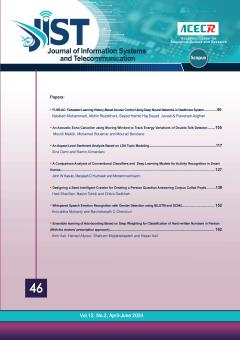One of the criteria for search engines to determine the popularity of pages is an analysis of links in the web graph, and various methods have already been presented in this regard. The PageRank algorithm is the oldest web page ranking methods based on web graph and is
More
One of the criteria for search engines to determine the popularity of pages is an analysis of links in the web graph, and various methods have already been presented in this regard. The PageRank algorithm is the oldest web page ranking methods based on web graph and is still used as one of the important factors of web pages on Google. Since the invention of this method, several bugs have been published and solutions have been proposed to correct them. The most important problem that is most noticed is pages without an out link or so-called suspended pages. In web graph analysis, we noticed another problem that occurs on some pages at the out degree of one, and the problem is that under conditions, the linked page score is more than the home page. This problem can generate unrealistic scores for pages, and the link chain can invalidate the web graph. In this paper, this problem has been investigated under the title "One-Two Gap", and a solution has been proposed to it. Experimental results show that fixing of the One-Two gap problem using the proposed solution. Test standard benchmark dataset, TREC2003, is applied to evaluate the proposed method. The experimental results show that our proposed method outperforms PageRank method theoretically and experimentally in the term of precision, accuracy, and sensitivity with such criteria as PD, P@n, NDCG@n, MAP, and Recall.
Manuscript profile


